
|
January 30, 2018
NTD Interview
|
|
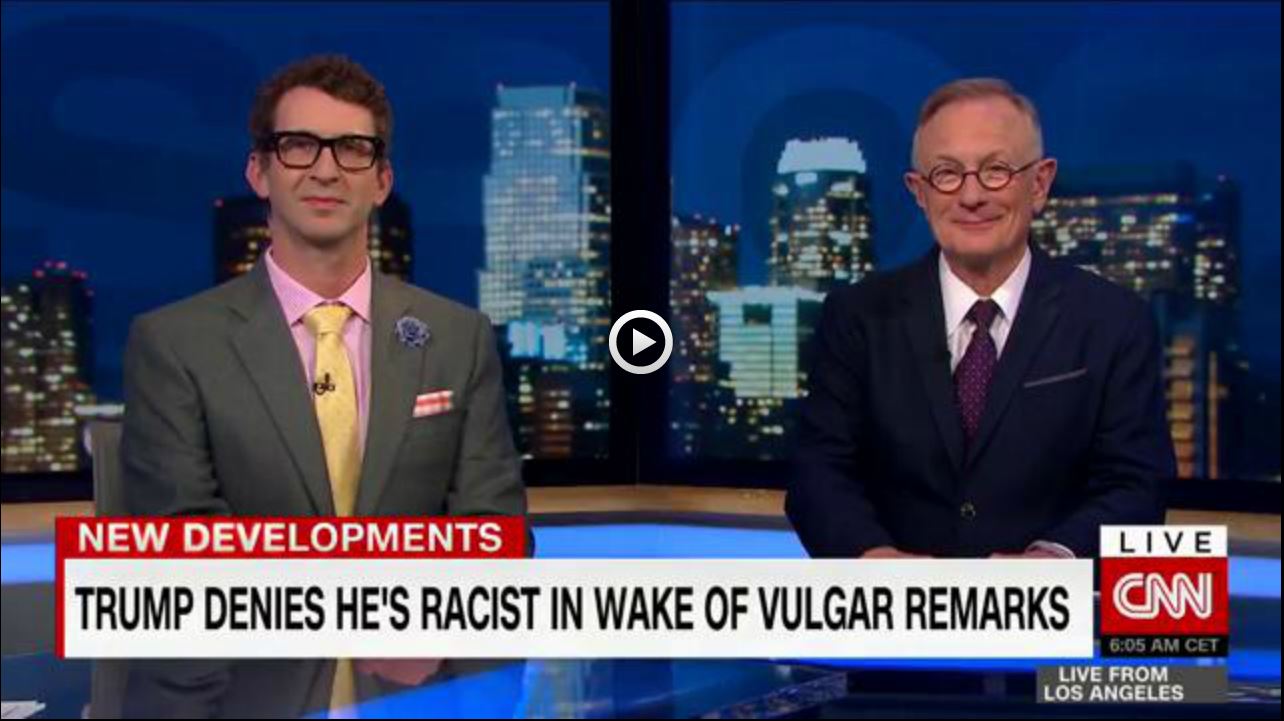
|
January 16, 2018
CNN Interview - Part 1
|

|
January 16, 2018
CNN Interview - Part 2
|

|
January 16, 2018
Press Conference
|
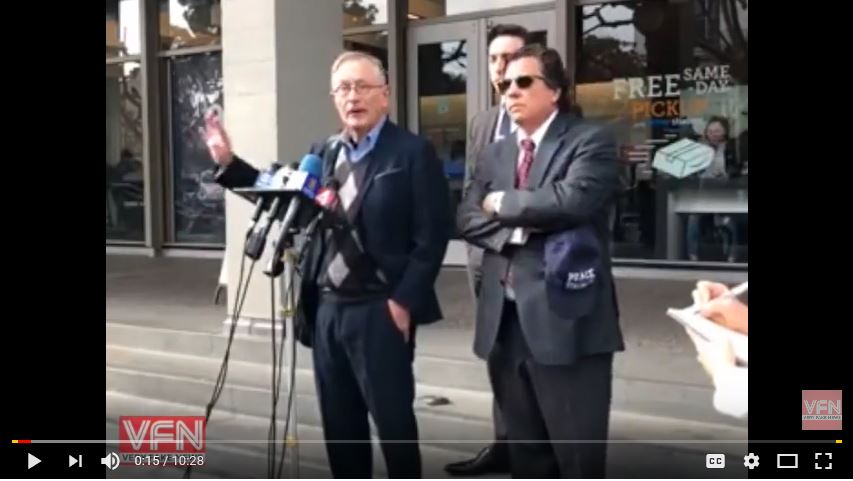
|
January 16, 2018
Press Conference
|

|
October 24, 2017
CNN Interview
|

|
October 18, 2017
CNN Interview
|
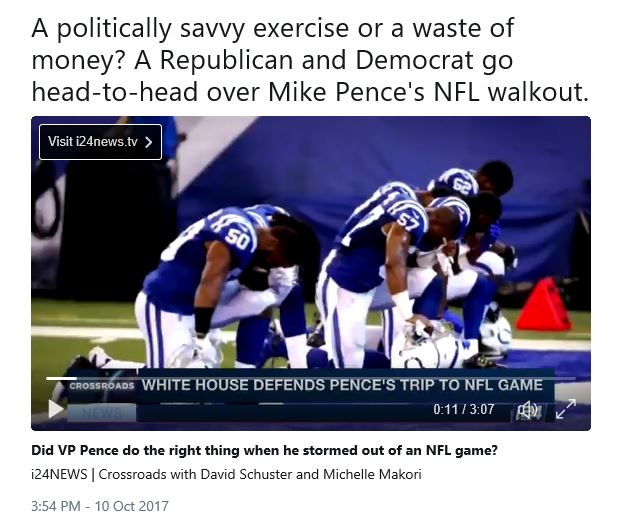
|
October 10, 2017
i24News Interview
|
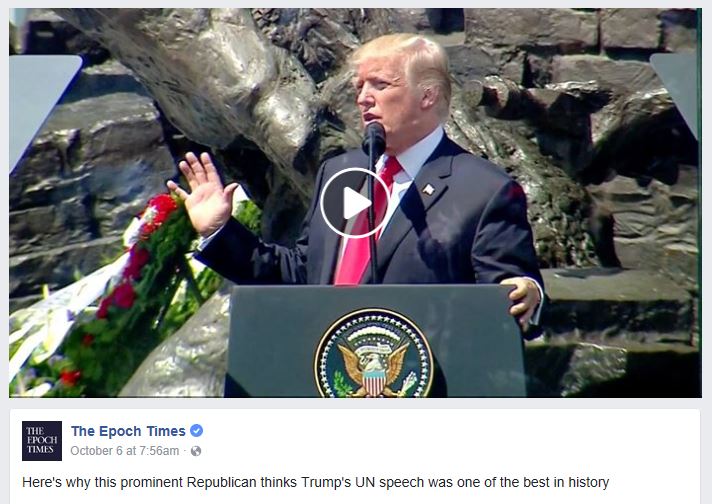
|
October 6, 2017
The Epoch Times Interview
|
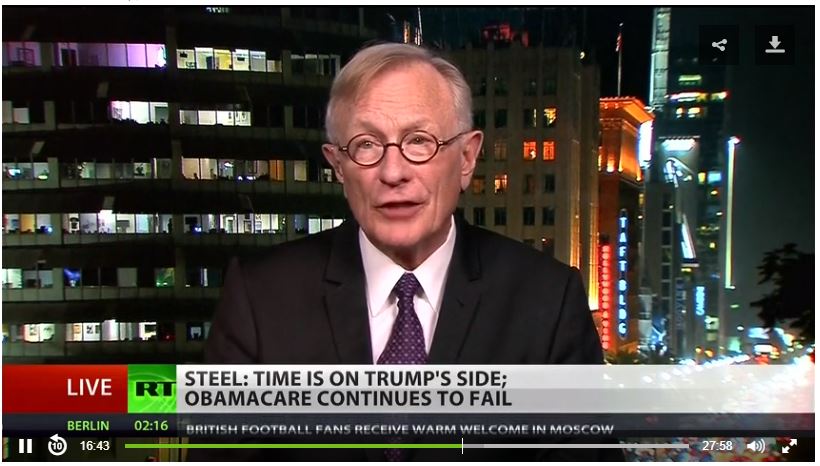
|
September 27, 2017
RT America Interview
|
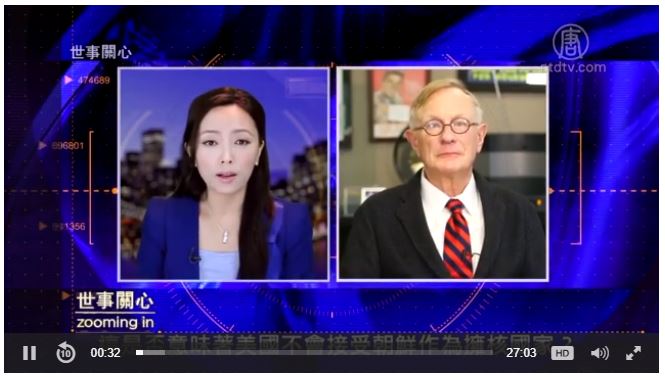
|
September 26, 2017
NTD Interview
|
|
|
|
|
|
|
|
RNC Resolution Opposing “National Popular Vote Compact"
August 05, 2011
RESOLUTION OPPOSING “NATIONAL POPULAR VOTE COMPACT”
WHEREAS, the Constitutional method of electing the President of the United States through the Electoral College was the method deemed best by the founding fathers of the United States of America for ensuring state sovereignty because all states, both large and small, are included in the presidential election process; and,
WHEREAS, the Constitution preserves the balance of power and authority between the federal and state governments through the mechanism of the Electoral College; and,
WHEREAS, the Electoral College has been tested and proven itself over 56 presidential elections as the method to best preserve our representative form of democracy, resulting in the election of a President by a majority of electoral votes not a mere plurality; and,
WHEREAS, the National Popular Vote Interstate Compact” if successfully implemented would eviscerate the constitutional Electoral College process of electing the President of the United States; and,
WHEREAS, the “National Popular Vote Interstate Compact” if successfully implemented would radically change the way we elect our President through a questionable legal maneuver by changing the rules of presidential elections via a compact between as few as 11 states instead of the normal 38 states needed to amend the Constitution; and,
WHEREAS, under the “National Popular Vote Interstate Compact,” if successfully implements would make a non-member state’s electoral votes are irrelevant because member states electoral votes would number 270 or more and they would award their votes to the national popular voter winner, effectively destroying the Electoral College; and,
WHEREAS, the “National Popular Vote Interstate Compact” if successfully implemented would undermine state authority and give more populated media markets power over the voice of the states; therefore be it
RESOLVED, that the Republican National Committee opposes this attempt to undermine the U.S. Constitution and the Electoral College by way of the “National Popular Vote Interstate Compact;” and, further be it
RESOLVED, the Republican National Committee does fully endorse retaining the constitutionally approved and time-tested Electoral College method of awarding electoral votes to candidates to win the office of President United States of America; and be it further
RESOLVED, the Republican National Committee strongly encourages all state legislatures and Governors to reject the “National Popular Vote Interstate Compact.”
As approved by the Republican National Committee, August 5, 2011

Scathing Report Undermines All Credibility in Redistricting Process
July 17, 2011
Voters were promised that the California Citizens Redistricting Commission would restore integrity to the redistricting process. No more political games. No more insider shenanigans. No more districts drawn specially for incumbents.
The commission has been a perfect failure on every account. The first maps were universally criticized by Republicans and Democrats and likely couldn’t withstand legal challenges on the basis of the Voting Rights Act. Last week, the commission announced that it wouldn’t release the second draft of maps– this from a commission that promised openness and transparency.
Now, we learn from Friday’s bombshell report from CalWatchdog.com that a commissioner has made multiple campaign contributions to Democratic candidates and has extensive connections to a redistricting special interest group.
Aguirre’s application to serve of the commission fails to list any political contributions to Democratic candidates or involvement with Democratic campaigns. His only reference to partisan activities is a list of past membership in the Peace and Freedom Party, the La Raza Unida Party, the Green Party and the Democratic Party.
The commission’s legally mandated background report, prepared in compliance with Title 2, Section 60835 of the California Code of Regulations, begins to tell the different story about Aguirre’s significant political activism.
In the September 19, 2010, “Report on Information Collected Concerning Applicant,” Steven Benito Russo, chief of investigations for the California Bureau of State Audits, acknowledged that Aguirre’s letters of recommendation came primarily from Democratic Party leaders, including Kathy Long, a Democratic supervisor for Ventura County, and Susan Broidy, a director of the California Democratic Party.
“Staff also discovered that Applicant had hosted fundraiser at his home in October 2008 for Ferial Masry, a Democratic candidate for Assembly, and in June 2010 endorsed Marie Panec, a Democratic candidate for Congress,” the investigator wrote. When pressed by staff about his partisan political activities, the report explained that Aguirre told them, “It’s not about the party — it’s about the person’s position.”
An independent review of state campaign finance documents revealed what state auditors missed: three campaign donations to Democratic candidates for state office. In November 2008, Aguirre contributed $100 to Ferial Masry, the Democratic nominee for the 37th State Assembly District. A year later, he doubled his political giving with a $200 contribution to Gloria Romero, a former Democratic State Senator and candidate for state superintendent of public instruction.
It’s understandable why the state’s nonpartisan investigators missed Aguirre’s final political contribution: it posted on the California Secretary of State’s website nine days after the California Bureau of State Audits completed its background report. That final contribution was a $100 to Das Williams, now the Democratic Assemblyman for the 35th district.
Williams, whose political career is directly impacted by the maps Aguirre must approve, previously interacted with his contributor dating back at least two years earlier, when Aguirre served as Santa Paula’s representative on the Ventura Council of Governments.
The new evidence produced by CalWatchdog’s report doesn’t just impugn the credibility of Commissioner Gabino Aguirre: it undermines any remaining shreds of public trust in the whole commission and the entire redistricting process.
That’s because the CalWatchdog investigation demonstrates a failure by the State Auditors to properly vet the commissioners.
- How could the State Auditor miss three campaign contributions made by Aguirre, especially when all of the contributions are publicly available on the Secretary of State’s website?
- Why didn’t the Commission have a system in place to monitor the ongoing potential for conflicts-of-interest? After all, Commissioner Aguirre’s last campaign contribution came nine days after the Commission completed its background investigation?
- How could the Commission miss Aguirre’s close ties to incumbent Assemblyman Das Williams?
- How could the Commission ignore the clear conflict-of-interest between Aguirre and the Coastal Alliance United for a Sustainable Economy, which submitted its own maps to the commission?
Commissioner Aguirre should resign, but even that would be too little, too late. At this point, any maps produced by this Commission are irreversibly tainted. The experiment of the Citizens Redistricting Commission has failed. The only option left is for the redistricting process to shift to the courts.

RDAs will end … when elephants fly?
July 15, 2011
Something strange happened in the first six months of the Gov. Jerry Brown administration. He killed the invidious Redevelopment Agencies, which many California cities used to confiscate private property against unwilling land owners, in the name of abolishing "blighted" neighborhoods. Through Assembly Bill 26X, the Legislature voted to disband redevelopment agencies unless they are willing to share property tax revenue in the future to help finance public schools.
Long Beach's Democrat mayor, Bob Foster, released a statement, "We are extremely disappointed with the governor's decision to sign AB1X26 and AB1X27, legislation that will dramatically affect our ability to invest directly in our cities, build affordable housing, revitalize our local economies and create the jobs our citizens need now."
It's always fun hearing a Democrat worry about affordable housing and creating jobs.
Sadly, too many Republican mayors also adopt the position that the city is a better at central planning than the market. Instead of curing blight, many RDAs help foster blight as can be seen in Anaheim. Central planning usually does not work against market forces. Giving any government the right and power to seize land is fundamentally questionable. At the same time stealing private property invites corruption and generates huge profits for well connected developers.
What's politically odd is that Jerry Brown was the prime mover to abolish these bureaucracies. Faced with unparalleled budget shortfalls, Brown discovered he could save the state some 1.7 billion in the first year alone, by stripping cities of the RDAs. The RDAs depend on property taxes, which are taken from the local county and state.
Most Democrats voted for AB26X. But without Republican votes, it would have not pass either chamber. Our hero is Senator Ted Gaines, whose vote made it possible to pass the Senate. In the assembly, the heroes are Beth Gaines, Dan Logue, Alan Mansoor, Chris Norby and Jim Neilson.
State Sen. Alan Lowenthal (D-Long Beach) argued he was forced to choose between two bad choices but had to choose against the RDAs because "There's a limited pie and it is shrinking. We are faced with doing this or that, but not doing both."
Conservatives and free market economists realize that too much government begets more controls, more expenses and more bureaucracy. In the era of spending limits, this is a golden opportunity to abolish agencies, commissions, departments, boards and authorities. Conservatives believe that to return power to individual citizens we need to starve the beast. Who knew, that Brown would kill off one beast to protest another?
Obviously Brown had ulterior motives to secure funding for his union allies at all costs. At least the RDA is buried. Let's hope it doesn't return like Frankenstein.

When elephants fly: the end of the dreaded RDAs
July 12, 2011
By Shawn Steel
California National Committeeman
Republican National Committee
Something strange happened in the first six months of the Jerry Brown administration. He killed the invidious Redevelopment Agencies [RDA] which many California cities used to confiscate private property against unwilling land owners, in the name of abolishing “blighted” neighborhoods. Through Assembly bill 26X, the legislature voted to disband redevelopment agencies unless they are willing to share property tax revenue in the future to help finance public schools.
Long Beach’s democrat mayor, Bob Foster, released a statement “We are extremely disappointed with the Governor’s decision to sign AB 1X26 and AB 1X27, legislation that will dramatically affect our ability to invest directly in our cities, build affordable housing, revitalize our local economies and create the jobs our citizens need now.”
It’s always fun hearing a democrat worry about affordable housing and creating jobs.
Sadly, too many republican mayors also adopt the position that the city is a better at central planning than the market. Instead of curing blight, many RDA’s help foster blight as can be seen in Anaheim. Central planning usually does not work against market forces. Giving any government the right and power to seize land is fundamentally questionable. At the same time stealing private property invites corruption and generates huge profits for well connected developers.
What’s politically odd is that Jerry Brown was the prime mover to abolish these bureaucracies. Faced with unparalleled budget shortfalls, Brown discovered he could save the state some 1.7 billion in the first year alone, by stripping cities of the RDA’s The RDAs depend on property taxes, which are taken from the local county and state.
Most democrats voted for AB 26X. But without republican votes it would have not pass either chamber. Our hero is Senator Ted Gaines, whose vote made it possible to pass the senate. In the assembly, the heroes are Beth Gaines, Dan Logue, Alan Mansoor, Chris Norby and Jim Neilson.
State Sen. Alan Lowenthal (D-Long Beach) argued he was forced to choose between two bad choices but had to choose against the RDA’s because “There’s a limited pie and it is shrinking. We are faced with doing this or that, but not doing both.”
Conservatives and free market economists realize that too much government begets more controls, more expenses and more bureaucracy. In the era of spending limits, this is a golden opportunity to abolish agencies, commissions, departments, boards and authorities. Conservatives believe that to return power to individual citizens we need to starve the beast. Who knew, that Brown would kill off one beast to protest another? Obviously Brown had ulterior motives to secure funding for his union allies at all costs. At least the RDA is buried. Let’s hope it doesn’t return like Frankenstein.

Electoral College Madness
May 13, 2011
Circumventing the U.S. Constitution to further political agenda is normally the Left’s schtick, which makes it surprising to see Republicans rallying to the National Popular Vote (NPV), the latest liberal attempt to end-run the Constitution.
NPV would replace the state-by-state electoral system with the direct election of the president by guaranteeing an Electoral College majority to the popular vote winner. This would be accomplished by convincing stat es to enact legislation binding them to award their electoral votes to the national popular vote winner – even if that candidate fails to carry the state. Once the number of states enacting NPV laws have at least 270 electoral votes among them, they will have imposed de facto direct presidential election on the rest of the country. So far, eight states, representing 77 electoral votes, have enacted NPV laws.
This maneuver cunningly side-steps the Constitution’s cumbersome amendment process and allows NPV proponents to do away with our centuries-old electoral system on the say-so of fewer than half the states in the Union (doubtless causing Madison to spin in his grave).
NPV was birthed from the womb of the Left and is being financed by Tom Golisano, a billionaire who supported John Kerry for president and previously spent $93 million on three campaigns for New York Governor as the nominee of the Independence Party (which he created). Golisano is using his vast wealth to employ GOP lobbyists and politicians to sell this liberal brainchild to Republicans (he doesn’t need to convince liberals). Some simple online research of the issue makes clear that Golisano is bankrolling on extensive PR campaign targeting Republicans.
Unfortunately, a dismaying number of Republicans are buying into it. In states like Missouri, Oklahoma and South Dakota, Republican legislators are carrying the NPV ball. In the GOP-controlled Minnesota legislature, the Republican-sponsored NPV bill has passed the state House and recently cleared a key state Senate committee. In my home state of California, NPV is being carried by the Assembly Republican Caucus chairman. What would possess any Republican leader to propound a scheme so clearly contrary to the Founding Fathers’ constitutional design?
In my state of California, is justified to Republicans with complaints that we are “taken for granted” by presidential campaigns that in 2008 raised $150 million here but spent a scant $28,000, and promised National Popular Vote will magically make us relevant again. What we aren’t told is how NPV will restore a state GOP that is shut out of every statewide office, or why future presidential campaigns will spend more of their finite funds on California’s very expensive media markets, rather than push for a popular vote majority in less expensive states – and still get California’s 55 electoral votes under NPV rules.
NPV proponents cite the four times in our 235-year history in which the presidential winner lost the popular vote – but their solution will create the quadrennial spectacle of watching a number of states vote for the Republican nominee only to have their electoral votes go to the Democrat, and vice versa.
Take, for example, the states that have enacted NPV: Hawaii, Illinois, Maryland, Massachusetts, New Jersey, Washington, Vermont (and DC). All went for John Kerry in 2004, but under NPV their electoral votes would have gone to George W. Bush.
NPV has other problems: for example, Article 1, Section 10 of the Constitution prohibits states from entering into agreements or compacts with each other without Congress’ permission, casting doubt on the constitutionality of NPV, which is essentially a compact among the enacting states.
Republicans should be incensed at the National Popular Vote campaign’s cavalier attitude toward the Constitution. Our electoral system was conceived by the greatest political minds America has ever produced. The Founders thought it the best possible system for electing the chief executive of the Union. It manifests that we are a republic, rather than a democracy. It reflects that we are a federal union of sovereign states, rather than a unitary central government with 50 administrative units.
Presidential electors represent the voters of their states, but NPV would frequently force electors to act in opposition to the expressed will of the citizens they represent. That is the fundamental contradiction at the heart of this dishonest initiative.
Republicans flirting with this constitutional end-run should also remember a major priority of the Tea Party movement – which re-energized the GOP as the party of limited government and fueled its 2010 election triumph — is returning the Constitution to the center of our national political life.
Given these realities, it makes little sense for Republicans to support an extra-constitutional attempt by the Left to gut the Electoral College in the vain hope it might provide some political advantage for the GOP. In 2010, Republicans gained a record 680 state legislative seats and took control of 26 state legislatures, and now have 29 governorships.
It’s in the GOP’s power to stop this liberal end-run around the Constitution. For my part, I plan to ask the Republican National Committee to oppose NPV at our spring meeting, because it will be to our eternal regret if Republicans serve as its mid-wives.

Brown caught between unions, voters
January 12, 2011
 Jerry Brown is doomed. That's one way to read his new state budget, which seeks to eliminate the $25 billion deficit with equal parts spending cuts (primarily to social services) and tax increases. The new governor wants voters to re-impose the 2009 tax hikes on themselves for another five years – the same taxes they overwhelmingly refused to extend for two years. Mindful of that outcome, Brown has embraced blackmail: Renew the tax hikes or school spending will be slashed.
Brown's budget is a doomed half-measure that confirms he is a conventional liberal. The spending cuts are significant but insufficient, and in the unlikely event voters renew the tax hikes, the damage to our anemic economy virtually guarantees the promised revenue won't materialize.
A recent study of how governments cope with deep deficits and debt found those that successfully restored fiscal order employed budget solutions consisting, on average, of 85 percent spending cuts (including 22 percent cut from government wages and salaries). The typical failed solutions relied on equal parts tax hikes and spending cuts – Jerry Brown's formula.
Most revealing is what the new budget plan doesn't do: tackle the pension time bomb and the bloated state payroll. Given the magnitude of our chronic deficits, the state payroll should be rolled back at least to 2000 levels, yet Brown's budget merely extends Schwarzenegger-era pay cuts to a few segments of the state workforce.
Why target welfare recipients instead of state employees? Because welfare recipients don't have a union. Public employee unions spent $40 million on Brown's behalf, and they expect a return on their investment. On his first day in office, Brown replaced seven pro-charter-school reformers on the state Board of Education with status quo educrats – including the lobbyist for the state teachers union.
The hard truth is: Restoring California's fiscal health requires dramatically downsizing the number of state employees and their unsustainable pensions and benefits. That would require Jerry Brown turning on the public employee unions that elected him – an act of political audacity that would make Nixon going to China seem like a Sunday school picnic.
Thus the horns of Brown's dilemma: his present course will produce continued economic stagnation and budget deficits, and impatient voters will toss him out in four years. On the other hand, taking on the unions will sunder the California Democratic Party.
Hence the opportunity for prostrate California Republicans. It used to be that "As California goes, so goes the nation." Now the state looks more like a lagging political indicator than a leading one. We're just entering what the rest of country went through in 2009-10: an era of complete liberal Democratic dominance. There were no Republican fingerprints on President Barack Obama's Great Leap Leftward, and American voters responded by handing the GOP historically huge gains. If Jerry Brown maintains his present course he'll be more unpopular than during the Rose Bird recall and spark a similar backlash.
Granted, Brown took office amidst a mess – but one in large measure the handiwork of the government unions that put him in office. His budget plan doesn't go far enough to stop California's slouch to insolvency. The further cuts will send union members into the streets, earning Brown their hostility but with not offsetting credit with voters. Jerry Brown will never be re-elected if he allows California to become even a shadow of Greece. He is doomed unless he breaks the power of the government unions.
In 2012, the budget will still be in the red. Overregulation and overtaxation will keep the economy feeble, unemployment high and state revenue down. Public perception of government employee unions is at an all-time low. States like Mississippi and Wisconsin are demolishing the myth of Brown's "green economy" by using tax incentives to lure solar manufacturing and jobs out of California. There will be no Arnold Schwarzenegger to tarnish the GOP brand. The lowered threshold for budget approval allows the Democratic majorities in the Legislature to enact radioactive budgets without a single Republican vote. Brown and the Democrats will be solely responsible for the state of the state.
Assembly and Senate Republicans have already stated no GOP legislator will vote to put Brown's tax hikes before the voters – which will force Brown to cut deeper. If unified Republicans present voters with principled alternatives, they'll be in a position to gain seats thanks to an honest redistricting. And as long as Brown avoids the necessary steps to restoring economic prosperity and government solvency, it is Republicans' sober duty to do everything they can to ensure this is Brown's last fling in politics.
|
Articles
2025
2024
2023
2022
2021
2020
2019
2018
2017
2016
2015
2014
2013
2012
2011
2010
2009
2008
2007
2006
2005
2004
2003
2002
2000
1998
1996
|